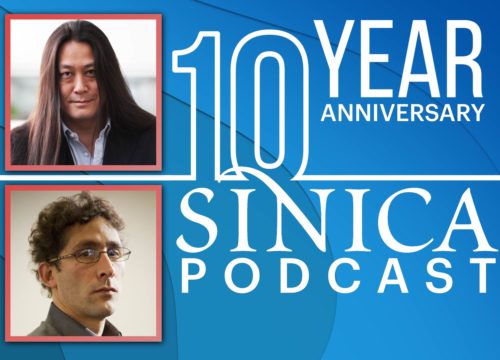The new role of Chinese food in the U.S.
Zhao Yong, CEO and co-founder of Junzi Kitchen, was pursuing his Ph.D. in environmental science at Yale University when he decided to dive into the restaurant business in 2013. Now he has opened three restaurants in New York City, in addition to the first one he co-founded in New Haven. As part of a new generation of Chinese entrepreneurs in the U.S., Yong shared his advice and talked about the change he wants to bring to the Chinese food industry in the U.S.
How did you start Junzi Kitchen?
I am from China, and I’ve been in the United States for 12 years. I started my schooling at Yale. While I was a student, we started Junzi Kitchen in 2013 and opened the first store in 2015 in New Haven. So I remember my first day of getting contact with American culture is when I tried McDonald’s in China. Or Coca-Cola in China. Or even Pizza Hut. That’s like understanding American but also Italian culture: to have this kind of pizza. But I’ve seen in China it’s called Pizza Bing. It’s a basic Bing [pancake] to us. So from the very beginning, to understand what people eat is the first step to understand people.
Junzi in Chinese means “a person with integrity.” It’s the idea and values of this ideal personality in traditional Chinese culture.
How does Junzi Kitchen distinguish itself from other Chinese restaurants in the U.S.?
We want to revitalize these traditional values in a modern context, provide a daily option for food and also for gathering in culture. During our daytime, we basically offer a bing and noodles, which is a more simple way of wraps in a bowl. It’s very similar to a lot of other fast casual places with similar shaped things like a burrito or rice bowls, but it’s actually authentic Chinese food from Northern China. Chunbing is basically a wrap. We have beef cucumber wrap. We have this classic combination that we grew up with, pork cabbage wrap. Also for noodle bowls, we have zhajiang noodles. Basically, it’s a new take on a traditional noodle — a zhajiang noodle — like in China. We have noodles [with toppings such as] tomato pork and tomato sauce. It’s a very traditional way of cooking it. So that’s how we grew up, with that everyday food we have.
Currently, most Chinese restaurants in the U.S. are outdated, in terms of service, in terms of a business model, in terms of a lot of experiences. People love the Chinese food. But right now, there is a gap between what people really want and what the market is offering.
In five years, we want to become the new icon of Chinese food, because when you see the Chinese food market, overall, it lacks brands. The current existing Panda Express and PF Chang’s, they are the older generation. They’ve been there for 30, 20 years. So we’re replacing — not replacing, but adding a new brand to this market, saying this is a type of new Chinese restaurant. It’s more representing the real Chinese modernities of food. That’s the idea of that. We want to become that brand when people recognize that in a mainstream market.
What’s your long-term goal?
[For] long-term goals, we want to become the peacemakers, making people trust each other more in a world. We want to create a new idea of “We should not hate each other.”
Junzi also means “peaceful being together but not the same.” It’s an idea that was 2,000 years ago. So why not we bring it for today? We definitely need that right now.
Conflict is always based on the short-term political gains or loss, the domestic economic growth. For the long run, it’s about the trust, understanding of the people. So it’s very easy to be hostile to the people you don’t know or don’t appreciate. It’s much harder to do some hostile stuff to the people you actually know, like your neighbor or your friends. So making friends is the most important part of the foundation, of having a more peaceful world in the future.
But there is no better way of making friends than to just start eating together. So the very beginning, we’re thinking: It’s hard for us to change anything politically the government is trying to do. But what we can do is create a brand that people have consensus about, like common ground: “I love that food. Me, too.” It’s our food, but it’s also your food. So that being built together is the most important part.
What advice would you give to Chinese students who want to start their own business in the U.S.?
To Chinese students — it’s very difficult for you to open some businesses in the U.S. because you find your own community too small. And then you find the mainstream market too big. And it’s hard to go there because you don’t have a lot of advantages. You probably only have been here five years. Which means, you need to persist into the mainstream market. Otherwise, it’s not worth it… You have to play some hard games trying to create something great for everybody in the United States as a customer. So that’s the hard part. But that’s a necessary choice to make. I think that’s the biggest advice for Chinese student entrepreneurs in the future.





